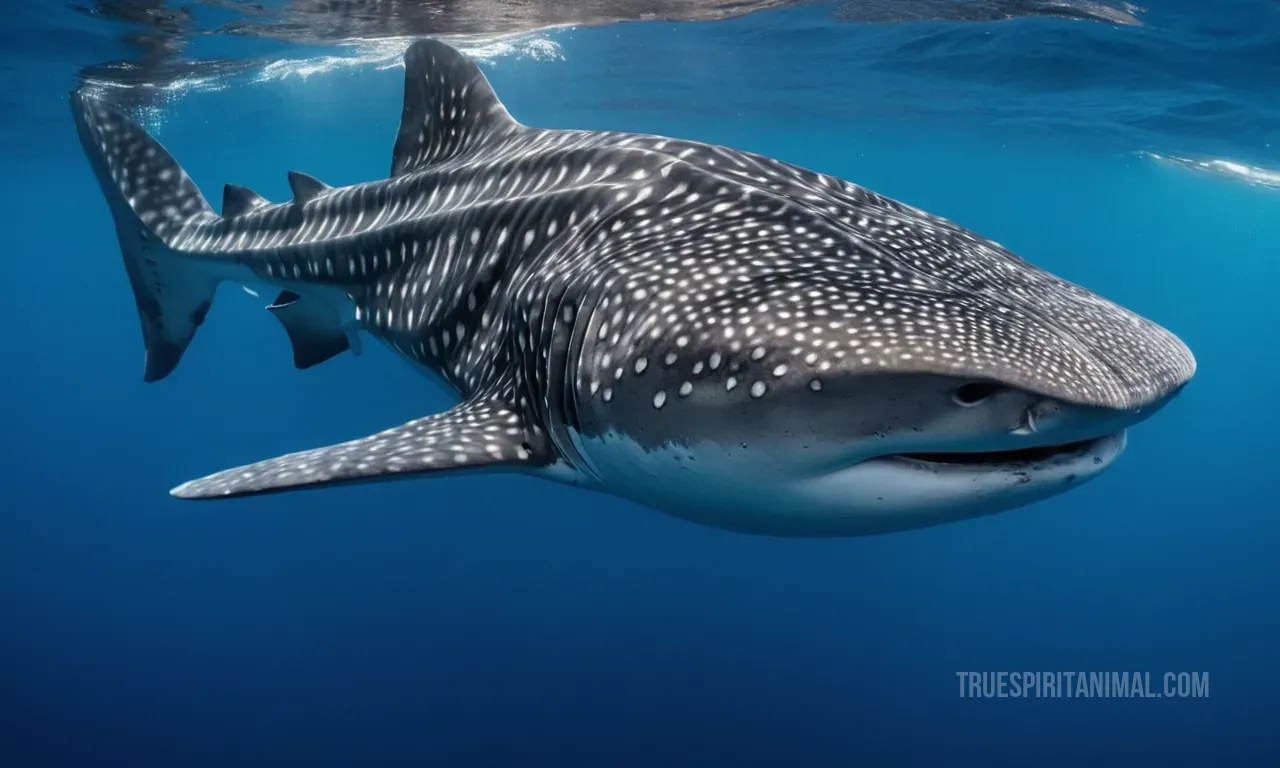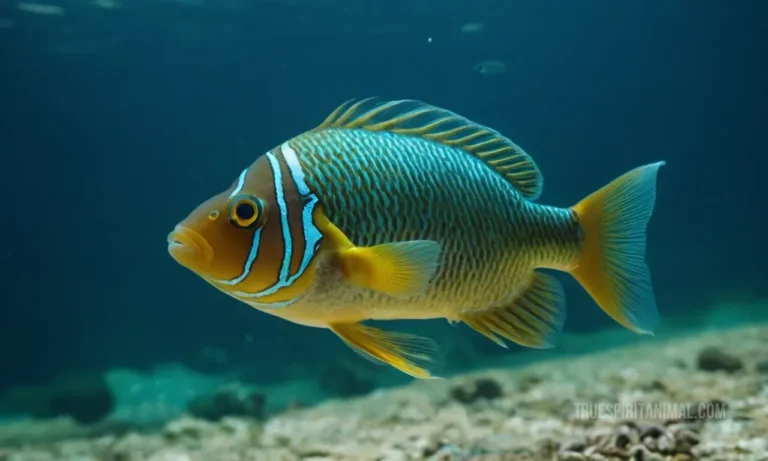Whale Shark Symbolism and Meaning

Whale sharks are the largest fish in the world, reaching lengths of up to 40 feet and weighing as much as a small car. Despite their intimidating size, they are gentle giants that feed primarily on plankton and pose no threat to humans. Their symbolism and meaning hold deep significance across various cultures and belief systems. In this article, we will explore the whale shark’s spiritual and cultural importance in different contexts, as well as its role in mythology and folklore.
Introduction
Whale sharks are known for their massive size and gentle nature, making them a fascinating subject of study for marine biologists and conservationists alike. However, they also hold great symbolic value across various cultures and belief systems. Their presence in art, literature, and mythology has led to the development of unique interpretations of their meaning and significance. This article delves into the whale shark’s symbolism and its impact on human understanding of these majestic creatures.
Whale Shark Symbolism in Different Cultures
Native American Culture: In Native American culture, the whale shark is often associated with water spirits or deities. They represent strength, wisdom, and protection from danger due to their size and power in the ocean. The Navajo tribe sees them as guardians of the sea, while the Pawnee tribe believes they bring good luck when encountered at sea.
Chinese Culture: In Chinese culture, whale sharks symbolize prosperity and abundance because of their large size and ability to consume vast amounts of food. They are also associated with wealth and fortune, as their name translates to “big fish” in Mandarin.
African Culture: For the Yoruba people of Nigeria, the whale shark is a symbol of fertility and abundance due to its reproductive capabilities, while the Maasai tribe views them as symbols of strength and resilience.
Australian Aboriginal Culture: The Australian Aboriginals view these creatures as symbols of rebirth and renewal, believing that they cleanse the ocean by consuming dead marine life.
Japanese Culture: In Japan, whale sharks are considered lucky charms for fishermen because their presence indicates an abundance of fish in the area.
Whale Shark Symbolism in Mythology and Folklore
Greek Mythology: According to Greek mythology, the whale shark was created when Poseidon transformed a nymph into a sea monster after she refused his advances. This creature is known as Scylla, who terrorized sailors until Perseus killed her with a magical sword.
Mayan Culture: The Mayans considered whale sharks sacred creatures connected to their god of the sea, K’inich Ahau, symbolizing power and protection. They believed that these giants could bring good fortune when encountered during fishing trips.
Aztec Mythology: In Aztec mythology, they represent Xolotl, the god of fire and death, who was said to ride on whale sharks across the sky.
Whale Shark Symbolism in Spirituality
Whale sharks are seen as symbols of transformation and change in spiritual practices. They remind us that even the largest creatures can be gentle giants, teaching us about humility and adaptability. Their presence signifies a shift from fear to understanding, encouraging personal growth and self-discovery.
Christianity: Some Christians view whale sharks as symbols of Christ’s love and compassion, representing His ability to save even the largest sinners.
Whale Shark Symbolism in Art and Literature
Whale sharks have been featured in art throughout history, often depicting them as symbols of strength and grace. In literature, they symbolize mystery and wonder, inspiring awe in those who encounter them.
Conclusion
Whale sharks have captivated humans for centuries with their sheer size and gentle nature. Their symbolism varies across cultures but consistently represents strength, abundance, and protection. They remind us of our connection to the ocean and its inhabitants. Understanding these creatures’ meanings can deepen our appreciation for their role in ecosystems and inspire conservation efforts. As we learn more about them, we realize that even the largest beings can embody humility and adaptability. Let’s continue to protect these gentle giants for future generations to appreciate their beauty and wisdom.





